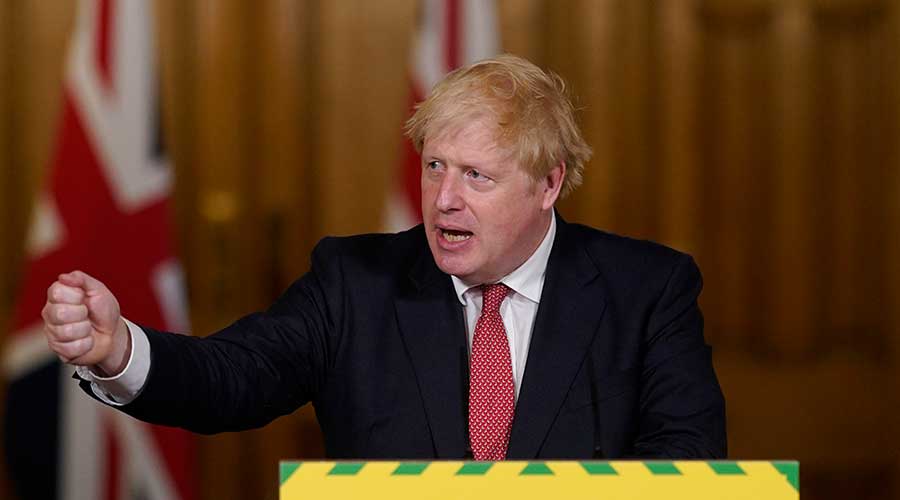British Prime Minister Boris Johnson has been persuaded to visit Gujarat by Narendra Modi — just as US President Donald Trump was — to show that 20 years after the riots “it’s business as usual”, a senior Indian source in the Conservative Party has confided to The Telegraph.
Boris will be in Gujarat on April 21, ahead of a day of talks with Modi in Delhi. On Sunday, Boris said: “As we face threats to our peace and prosperity from autocratic states, it is vital that democracies and friends stick together.
“India, as a major economic power and the world’s largest democracy, is a highly valued strategic partner for the UK in these uncertain times.
“My visit to India will deliver on the things that really matter to the people of both our nations — from job creation and economic growth, to energy security and defence.”
The word “really” appears aimed at a domestic audience in Britain, where Boris has faced calls to resign over Partygate.
Boris knows India as well as any western politician and will be aware of the sensitivities of visiting Gujarat, making him the first British Prime Minister to do so. His Gujarat itinerary has not been disclosed but reports say he is likely to visit the Sabarmati Ashram in Ahmedabad along with JCB’s new manufacturing facility near Vadodara.
JCB remains a strong supporter of the Conservative Party. The foundation stone of its Gujarat plant, its sixth in India, was laid in March 2019 by its chairman Lord Bamford.
There is also a big and prosperous Gujarati diaspora — sometimes estimated at 600,000-strong — which helped fill Wembley Stadium on Modi’s first visit to the UK as Prime Minister in November 2015.
According to the Financial Times, Boris “will meet businesses in Gujarat where he is expected to announce further collaboration between the two countries in areas such as health and technology and significant investment in crucial industries across the UK and India.
“Trade between India and the UK is worth an estimated £23 billion each year. Last year, the two countries agreed on a UK-India Comprehensive Strategic Partnership, which the UK government said would bring more than £533 million investment into the country from India and would result in the creation of more than 6,500 jobs.”
The paper said “Boris will hold talks with Modi in New Delhi focusing on strengthening security co-operation between India and the UK in the Indo-Pacific region as well as strategic defence in light of increasing Russian aggression.
“Throughout the Ukraine conflict, India has maintained a strategically neutral stance on Russia. Modi has expressed concern over the use of violence against civilians such as that recorded in Bucha, but India has opted to abstain on critical UN votes condemning Russia. Modi even met Russia’s foreign minister Sergei Lavrov this year.”
The FT added: “India is more worried about China, with which it clashed over their disputed Himalayan border in 2020, and wants to keep Moscow close given its friendly relationship with Beijing.
“Despite the diplomatic pressure over Ukraine, Truss’s (UK foreign secretary) visit highlighted London’s limited influence over New Delhi. During a tense public exchange with her Indian counterpart S. Jaishankar, who defended India’s discounted oil purchases from Russia while Europe continues to buy Russian fuel, Truss struck a conciliatory note. ‘India is a sovereign nation,’ she said. ‘I’m not going to tell India what to do.’”
Truss herself has said: “Deeper ties between Britain and India will boost security in the Indo-Pacific and globally, and create jobs and opportunities in both countries. This matters even more in the context of Russia’s unprovoked invasion of Ukraine and underlines the need for free democracies to work closer together in areas like defence, trade and cyber security.”
There is a “road map”, which sets out how bilateral trade could be doubled by 2030. The Telegraph has been told that although the aim is to sign a full-fledged bilateral Free Trade Agreement, there could be an “interim trade agreement” by the end of this year.
For now, the focus is on “health, life sciences, trade, IT, defence and security”. There could be an agreement on providing Indian nurses to the NHS.











